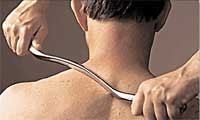You decide that, after a decade of watching all 600 UFC fights from the couch, to start Krav Maga. While it sounded like a good idea, the following day you call into work because you can’t move.
The first home remedies to cross your mind include rest (which is what got you into this mess in the first place), ice and half a bottle of ibuprofen. While this may be what everyone thinks we should do, I would suggest that none of the choices are part of the best way to handle most injuries. I have addressed how bad of an idea the anti-inflammatory approach is many times in the past (all of which can be summarized in my eBook on NSAID dangers, which can be found by clicking here).
But, rather than pointing out what you should NOT do, this article is focused on what you should do. And while it may seem a little self-serving, I do have this particular article to back up what I have to say and give it some validity. Basically, the authors discuss the path of muscle injury and repair. Specifically, they mention two hormones produced by our bodies: transforming growth factor (TGF)-β1 amd vascular endothelial growth factor (VEGF).
These two hormones may play a role in increasing blood flow to injured muscles and lowering the risk of scar tissue (fibrosis) from developing after an injury, and the authors suggest that massage may benefit muscle injuries by increasing the levels of these repair hormones.
Since our office combines advanced soft tissue techniques with manipulation, my self-serving advice would be that, after any type of muscle injury the standard approach of rest, ice and ibuprofen should be scrapped and you should make an appointment with your local chiropractor.
But, of course, my opinion is extremely biased.

